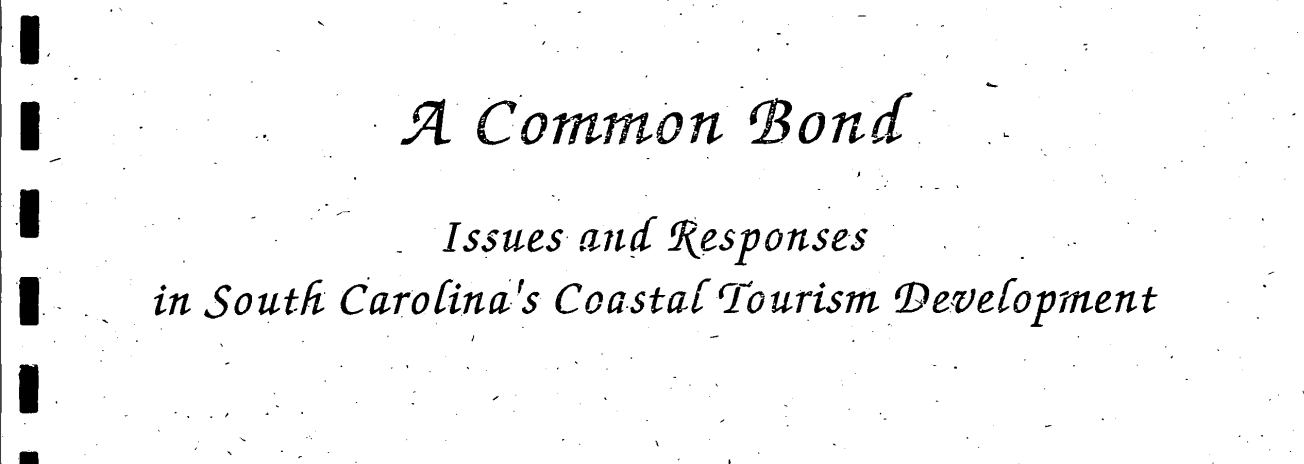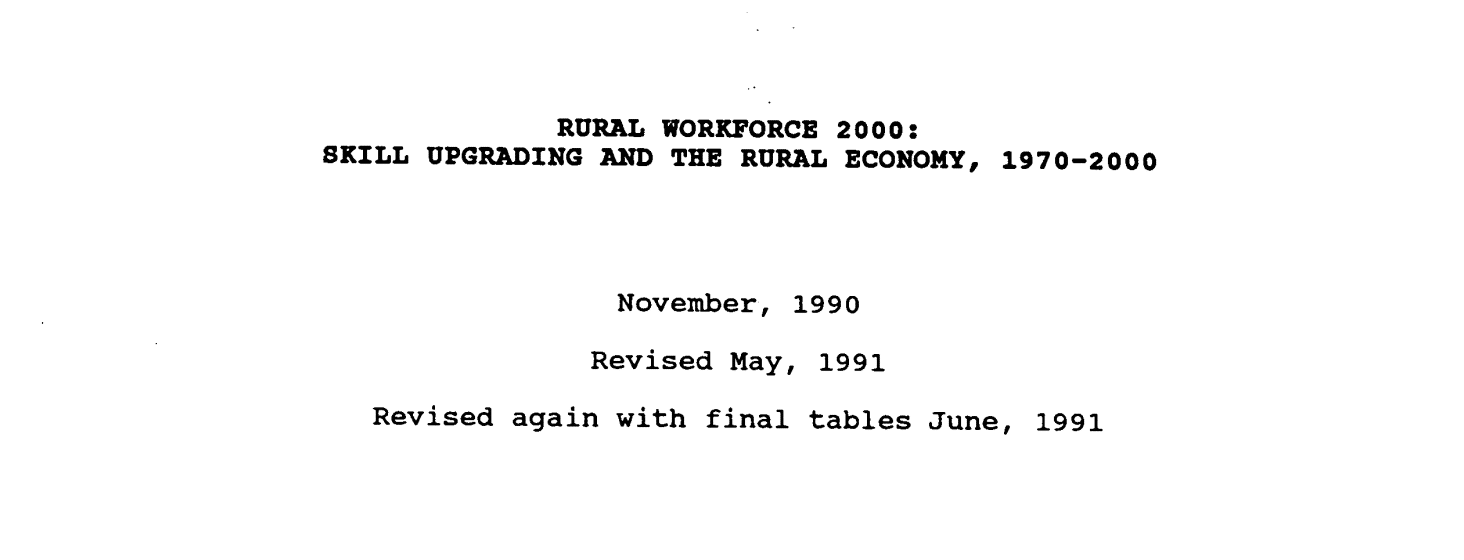Search Results for:

Charlie Alfero
Executive Advisor, The Center for Health Innovation
Using the Thrive Rural Framework: Gauging Progress
The Thrive Rural Framework can help you set goals and track progress over time. You can use this information to...

A Common Bond: Issues and Responses in South Carolina’s Coastal Tourism Development
This paper represents effort by the Palmetto Conservation Foundation to bring issues in coastal tourism in South Carolina into focus.

Idigenous Oaxacan Migrants in California Agriculture: A New Cycle of Poverty: A Request for Supplement Funding to REPP and the Ford Foundation
Report provides findings and research progress in survey of Mixtec farm workers in the Western United States.

Support Local Efforts for Eastern Kentucky
See our curated list of local resources and organizations aiding relief and recovery in Eastern Kentucky.

New Partnerships for Industrial Efficiency and Growth: Selected Best Practices
Report presents four of the most progressive industrial energy-efficiency programs in order to provide insight for future programs.

Devin Deaton
Action Learning Manager
Aspen CSG in Action
We approach all of our work with a humble and curious mindset, eager to learn and collaborate.

Rural Workforce 2000: Skill Upgrading and the Rural Economy, 1970-2000
Report seeks to address the importance of upgrading the skill levels of rural works to match the skill levels of available jobs.

Designing Scalable Co-Funding Solutions for Broadband and Digital Equity
Dec. 12th, 2023, 5PM
Join this webinar for way to unlock private and philanthropic contributions to help public broadband and digital inclusion funding reach underserved communities.

Advancing the Next Generation of Rural and Indigenous Leaders
Feb. 10th, 2023, 1PM
How is your community thinking and acting on the issue of next generation leadership?

101 Ideas For Stimulating Rural Entrepreneurship and New Business Development
Report outlines ways States can stimulate business development by nurturing and rewarding entrepreneurial activity.
